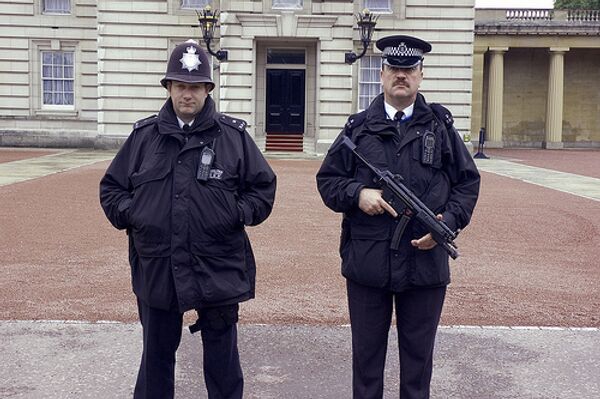MOSCOW. (RIA Novosti political commentator Andrei Fedyashin) - There is not a police force in the world that has not felt the impact of regular reforms. Unfortunately, such efforts equally regularly either peter out or end in a very abbreviated result, with the exception of perhaps two countries - Nigeria and Ghana - whose police contingents are believed to be the most corrupt in the world and no longer amenable to any tricks of the human mind. The Nigerians and the Ghanaians are still arguing which of them is the worse, and neither can win the argument.
Which country has the best force is clear. In Europe, it is the British police, and within it the Metropolitan Police, or Greater London Police. In the United States, it is the New York Police Department. Incidentally, it is the largest city police administration in the world, with just over 50,000 staff. The London Police employs only 37,000 people.
By sheer coincidence, the United Kingdom is now doing practically the same as Russia's Interior Ministry and government - it is engaged in a renewed drive for police perfection. Here, however, the comparison ends, because, for all the likeness of the goals, Russian "grey-uniformed men" and their UK colleagues are like apples and oranges.
The British are believed to have the best police officers in the world and among the best financed: Their budget now stands at 2.8 billion pounds, while numerically the police of England and Wales (Scotland has a separate police force) numbers 145,000 regular staff.
No police force in the world welcomes cuts in its ranks. Between 2000 and 2007, the British force has grown steadily and now boasts 20,000 staff on top of its regular strength. No plan exists to trim its numbers forcibly but much hope is laid on "natural old-age losses," which are expected to save 70 million pounds sterling by 2014. At the same time, London is preparing to increase "police effectiveness" by 5%. Such an improvement in quality implies increased patrolling on foot in the British cities; single patrols in city centers (for the moment, police officers patrol in pairs); and one car used by several patrols in turn (a saving of 300 million pounds a year).
The police reformers have found to their surprise that all the police in England and Wales require standardized equipment and improved electronic gadgets, although the British force cannot be said to be under-equipped. Bobbies (whose name derives from Sir Robert Peel, who established the force in 1826) have everything that all policemen in every country, including Russia, my hope for. But equipment in one county often does not match equipment in another.
New software for portable police computers is expected to save 400 million pounds a year. A reduction from 33 to 26 helicopters will save another 70 million. Overtime (when pay is doubled) will not be practiced as often as now, and will save the treasury 500 million pounds a year.
Lastly, the Home Office has decided to challenge the most sacred cow - the police uniform. It slightly differs in different places. In London a police officer has a crest on his helmet, but an Oxford copper is unlike his counterpart in Northumberland.
The Home Office, while preparing the reform, has had to give up, under pressure from top constabulary officials, a very useful rule: the right of a patrolman to decide on the spot the extent of a petty offence and make a reprimand instead of hauling in the "small fry" to police stations and overwhelm these with bureaucratic procedures. Police chiefs have considered that such a free interpretation of duties automatically reduces the rate of solved crimes and bonuses, which also exist in the British police in all units. In transport police, for example, any officer can get a 15% addition to his pay if, while investigating an offence on rail transport, he or she does not delay a train's departure by more than 90 minutes. These bonuses are paid by railroad companies.
Police corruption is rife in Britain, too, but not on the same scale as in Eastern Europe. For all the general dislike of the police, it is not considered the most corrupt agency in the world. A study carried out by Transparency International in 62 countries of Europe, America and Asia has put the police after political parties and parliaments in the corruption league tables.
The opinions expressed in this article are the author's and do not necessarily represent those of RIA Novosti.

